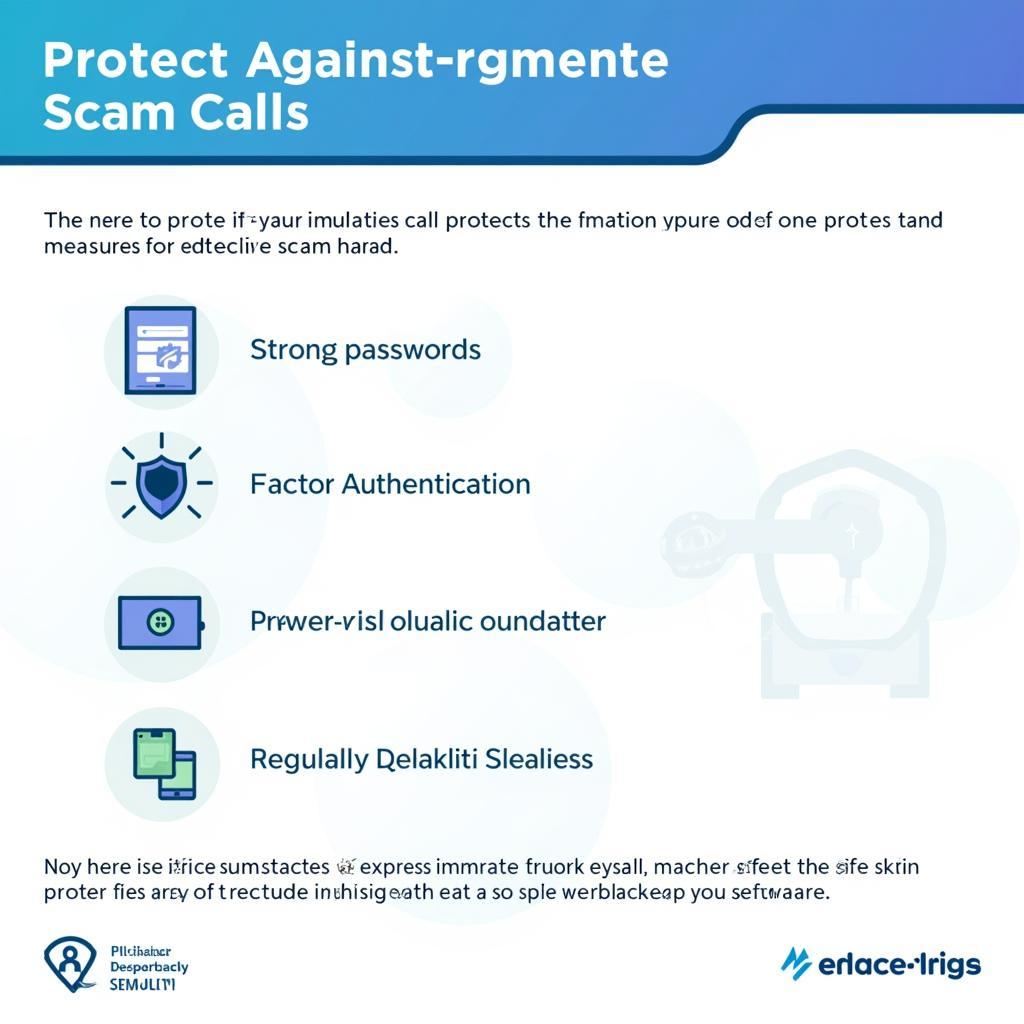Location Specialist Scam Calls are a growing threat. These scams prey on individuals by exploiting concerns about personal safety and location tracking. They often involve alarming claims about compromised security or imminent danger, attempting to trick victims into revealing sensitive information or making payments. Understanding how these scams operate is crucial to protecting yourself.
What are Location Specialist Scam Calls?
Location specialist scam calls are fraudulent calls where scammers impersonate security professionals, law enforcement, or even family members to manipulate victims. They frequently use scare tactics, claiming they have access to the victim’s location data and that their safety is at risk. This creates a sense of urgency, making individuals more susceptible to their demands.
Common Tactics Used in Location Specialist Scams
- Emergency Alerts: Scammers might claim there’s an emergency involving a loved one and that they need personal information or money to assist.
- Compromised Accounts: They may allege your online accounts have been hacked and they need your login details to “secure” them.
- Fake Law Enforcement: Scammers can impersonate police officers, claiming there’s a warrant for your arrest and demanding payment to avoid legal action.
- Tech Support Scams: They might pose as tech support representatives, stating your device is infected with malware and requiring remote access to fix it.
How to Identify a Location Specialist Scam Call
Recognizing these scam calls is the first step in protecting yourself. Here are some red flags:
- Unsolicited Calls: Be wary of unexpected calls from unknown numbers, especially those claiming to be from authorities or tech support.
- High-Pressure Tactics: Scammers often create a sense of urgency, demanding immediate action and threatening dire consequences if you don’t comply.
- Requests for Personal Information: Legitimate organizations rarely ask for sensitive information like passwords, social security numbers, or bank details over the phone.
- Unusual Payment Requests: Be suspicious of requests for payment via unconventional methods like gift cards, wire transfers, or cryptocurrency.
What to Do if You Receive a Suspicious Call
- Don’t Panic: Take a deep breath and try to remain calm. Scammers rely on panic to cloud judgment.
- Don’t Engage: Avoid providing any personal information or engaging in conversation. Simply hang up.
- Verify the Caller’s Identity: If you’re unsure about the caller’s legitimacy, independently verify their identity by contacting the organization they claim to represent.
- Report the Call: Report the scam call to the appropriate authorities, such as the Federal Trade Commission (FTC) or your local police department.
Protecting Yourself from Location Specialist Scams
Taking proactive steps can significantly reduce your risk of becoming a victim.
- Be Cautious with Online Information: Be mindful of the information you share online, particularly on social media platforms.
- Strengthen Your Passwords: Use strong, unique passwords for all your online accounts.
- Enable Two-Factor Authentication: This adds an extra layer of security, making it more difficult for scammers to access your accounts.
- Educate Yourself and Others: Stay informed about the latest scams and share this information with your family and friends.
Expert Insights
“Location specialist scams are increasingly sophisticated,” says cybersecurity expert, Dr. Amelia Chen. “Staying vigilant and informed is the best defense against these evolving threats.”
“Never underestimate the power of skepticism,” adds John Davis, a former law enforcement officer. “If something sounds too good to be true, or too alarming, it probably is.”
 Protecting Yourself from Location Specialist Scams
Protecting Yourself from Location Specialist Scams
Conclusion
Location specialist scam calls pose a serious threat, but by understanding their tactics and taking preventative measures, you can effectively protect yourself. Remember to stay informed, be skeptical, and never hesitate to report suspicious activity. Location specialist scams thrive on fear and urgency. Don’t fall victim.
FAQs
- What should I do if I accidentally gave information to a scammer?
- Can scammers track my location through my phone?
- Are there any apps that can help block scam calls?
- How can I tell if a call from law enforcement is legitimate?
- What are the legal consequences for scammers who perpetrate these calls?
- How can I protect elderly family members from falling victim to these scams?
- Are there any resources available for victims of location specialist scams?
Need Support? Contact Us:
Phone Number: 0902476650
Email: [email protected]
Address: 139 Đ. Võ Văn Kiệt, Hoà Long, Bà Rịa, Bà Rịa – Vũng Tàu, Việt Nam.
We have a 24/7 customer support team.





